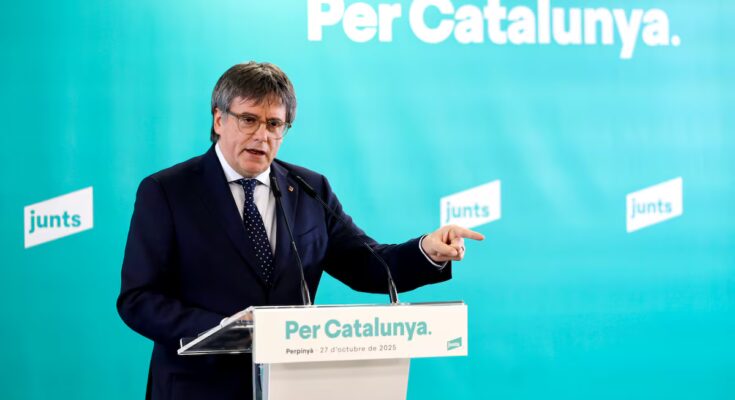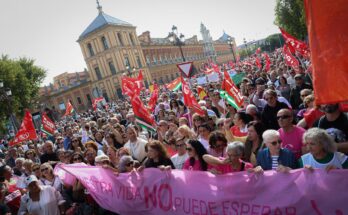Carles Puigdemont’s party has gained intense media attention in the last two weeks, but the notoriety achieved is inversely proportional to the political weight it has acquired. Because by announcing that from now on he will no longer vote on any law promoted by the government of Pedro Sánchez, whose investiture he voted for, he is betting on irrelevance. What Junts has decided to do is to paralyze the institution of which he is a part with a systemic, principled opposition, which implies a veto on all laws without taking into account their content and needs. The denial of the usefulness of politics. Voters who elected their seven MPs may be wondering what their vote is now. Because the 46 laws affected by this decision undoubtedly contain improvements for Catalans, and Junts will have to explain why he vetoes and also why he refuses to negotiate budgets vital to maintaining and improving public services.
What he has done is to veto any legislative initiative of the progressive government and, even if he assures that he will not vote on a censure motion promoted by PP and Vox, the negative vote on the government’s laws will systematically align him with the right-wing and far-right bloc. It is also a torpedo against the leadership of Pedro Sánchez, but it is difficult to understand what logic it responds to if we take into account that, according to the Opinion Study Center, 59% of Junts voters approve of the President of the Government’s management and only 12% approve of that of Alberto Núñez Feijóo, who would be the alternative.
With this decision it is clear that Catalonia gains nothing. But Junts is unlikely to get anything more than a few ephemeral titles. Indeed, it is generating doubts and discomfort in those who, like the mayor of Figueres, have presented themselves as the champion of useful politics. No matter how many explanatory tables it deploys, Puigdemont’s party will be in no better position to contain the hemorrhage of votes towards Aliança Catalana. On the other hand, it has already disappointed those who hoped that Junts would consolidate itself as the heir to CiU’s possibilism.
It is clear that Junts is immersed in an existential crisis. It is symptomatic that the decision was announced on the same day that the Strasbourg Court’s ruling on one of the independence appeals was due to be examined. The European Court of Human Rights ruled that the Spanish justice system had not violated the political rights of Oriol Junqueras, Jordi Turull and Jordi Sánchez by ordering their provisional detention after the 1-O referendum and preventing their participation in the 2017 regional elections.
The ruling upsets the strategy on which Junts has relied entirely: that the European courts agree with the Spanish ones. At this point it would already be a Pyrrhic victory, but this sentence suggests that, in those that follow, not even that will be achieved. Thus, with the position of irrelevance in which he voluntarily placed himself in Madrid and the one he already occupies in Catalonia since he decided to leave the government of the Generalitat, Junts becomes an increasingly excited political force. More than a position of strength, what this latest decision reveals is great confusion.



